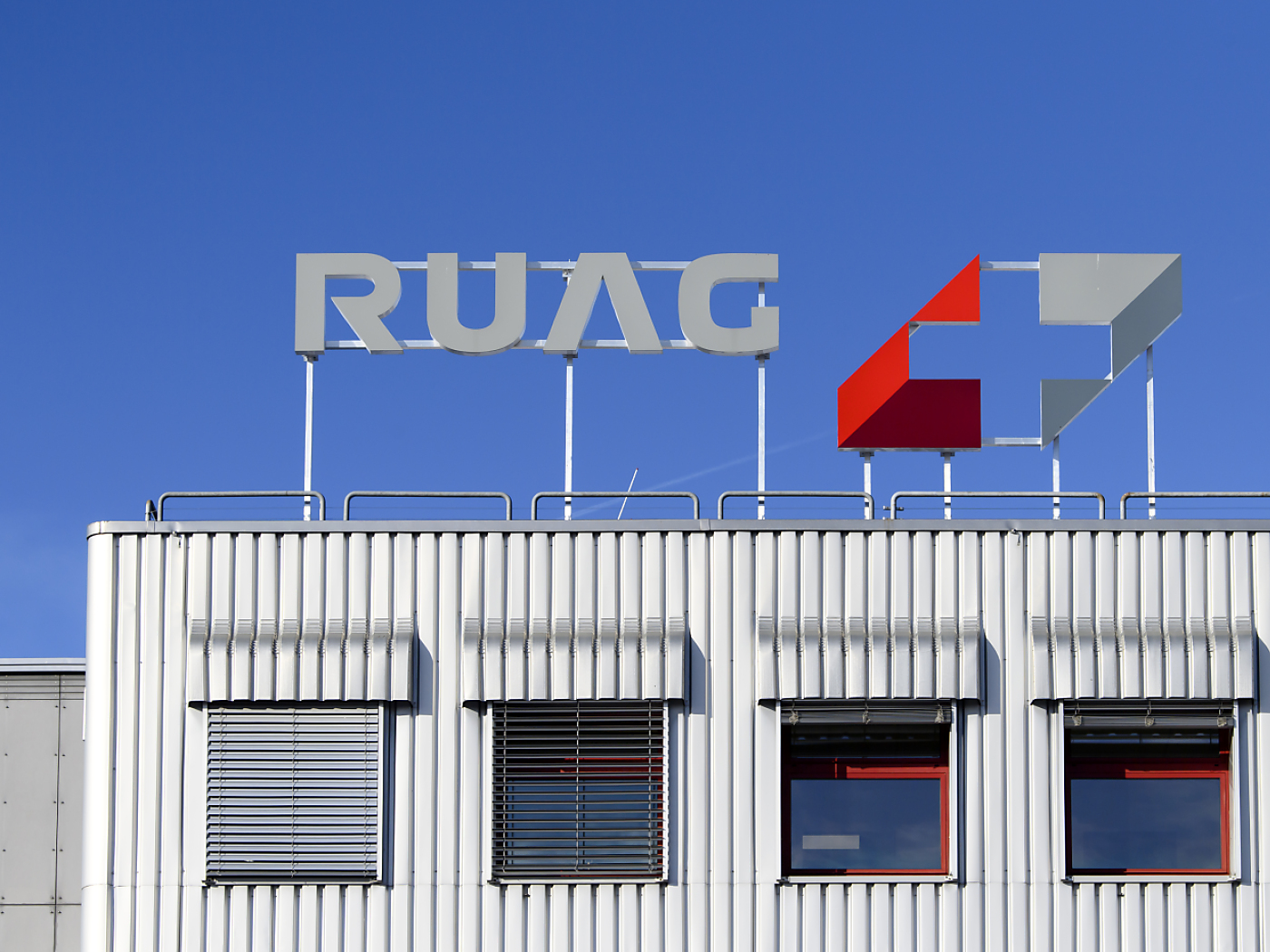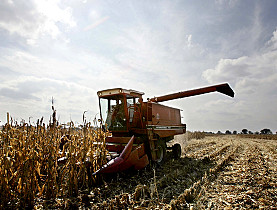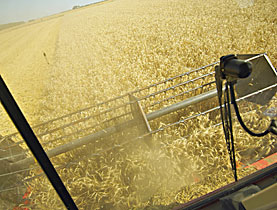Leuthard and farmers clash over WTO talks

Economics Minister Doris Leuthard has described an emerging trade deal at the World Trade Organization (WTO) as a "good compromise".
The Swiss Farmers’ Association on the other hand seriously disagrees, speaking of “disastrous consequences” for its members.
On Sunday Leuthard described Friday’s proposal as “a delicate basis on which one can build”. She admitted that Swiss agriculture would have to pay “a high price”, but she assured farmers that they would not be abandoned.
The compromise includes a further cut in the cap on contentious United States farm subsidies to $14.5 billion (SFr15 billion).
It also contains changes to proposals allowing developing countries to shield their farm sectors and some industrial goods from the full force of tariff cuts which have been at the centre of this week’s deadlocked discussions.
The WTO talks began in Geneva last Monday and are likely to run into the middle of this week.
“From a Swiss point of view the proposal is positive for industrial goods,” Leuthard said, explaining that the tariff on foreign agricultural products would drop by 54-60 per cent and the import of such goods would rise considerably.
Leuthard said she was confident the quality of Swiss products would assert itself, but admitted Switzerland had not achieved its target in this area.
“I would have liked to reduce the tariffs more, but here we have to conform with the European Union,” she said.
Criticism
However, the president of the Swiss Farmers’ Association slammed the proposed trade deal.
Hansjörg Walter said on Sunday that Swiss farmers could expect to lose 30-50 per cent of their income, estimating that the number of Swiss farms would halve within seven to ten years.
Walter said he therefore wanted to see Leuthard pushing for additional exemptions for sensitive products.
Responding to farmers’ criticism, Leuthard said it had been clear from the very beginning that this time farmers would not be spared, but she said she understood their concerns.
“We will not leave the farmers in the lurch – we will cushion any WTO agreement with accompanying measures,” she said.
Bananas
Before ministers from 35 key WTO players resumed talks in Geneva on Sunday evening, delegates were hoping to reach final agreement on bananas and other tropical product issues.
The European Union and Latin American banana producers agreed early on Sunday to cut the EU’s import duty to €114 (SFr185) a tonne by 2016 after an initial cut to €148 in 2009 from €176 now.
But it must still be approved by former European colonies in Africa, the Caribbean and Pacific (ACP) as well as EU member states such as France and Spain, whose farmers in the Caribbean territories and the Canary Islands also grow bananas.
A trade source said developing countries were also growing alarmed at signs that China would seek to protect markets for rice, cotton and sugar and other industrial sectors, shutting off new export opportunities for them. This was likely to surface in Sunday evening’s meeting, known as the “Green Room”.
“In the wider negotiation, everything still hangs on Sunday’s Green Room session,” according to EU trade chief Peter Mandelson. “There is no guarantee that the fragile package that began to emerge on Friday night will survive.”
swissinfo with agencies
Launched in the Qatari capital in November 2001, the WTO’s latest liberalisation talks known as the Doha Round have struggled to overcome many countries’ fears of exposing sensitive agricultural and manufacturing industries to more competition.
The negotiations broke down in July 2006, well past the original deadline of January 2005.
Despite, the key elements for an overall deal are now relatively clear. The United States would cut its farm subsidies, blamed by poor countries for squeezing their farmers out of the market.
The European Union would open its protected market for food by cutting agricultural tariffs, giving developing country food exporters such as Brazil new opportunities.
And developing countries would cut their industrial tariffs, opening their markets to manufacturers in rich countries. Other elements would include a boost to trade among developing nations and liberalization of services such as banking and telecoms.
But developing countries want waivers to tariff cuts to protect their subsistence farmers and fledgling industries, while rich nations say they cannot sell the sacrifices being asked of them unless they can point to gains in market access elsewhere.

In compliance with the JTI standards
More: SWI swissinfo.ch certified by the Journalism Trust Initiative











You can find an overview of ongoing debates with our journalists here . Please join us!
If you want to start a conversation about a topic raised in this article or want to report factual errors, email us at english@swissinfo.ch.